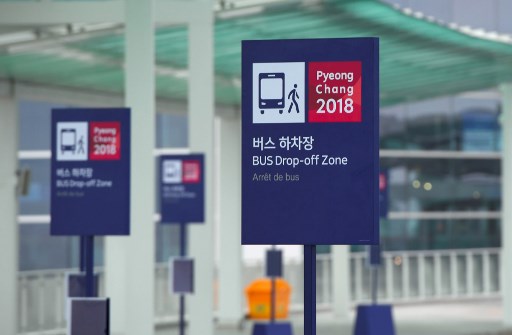
SEOUL, South Korea (AFP) – South Korea’s prime minister apologized Friday for suggesting the country’s women’s ice hockey team had no chance of a medal at the Winter Olympics in an unsuccessful attempt to dampen criticism over a unified team with the North.
The two Koreas agreed this week to field a unified women’s ice hockey side at the Games, which begin in Pyeongchang next month.
It came after Pyongyang agreed to attend what organizers and Seoul have sought to proclaim a “peace Olympics,” easing tensions over the nuclear-armed North’s weapons program.
But critics in the South said a unified team would disrupt the side and deprive some Southern squad members of the chance to play on the Olympic stage.
South Korea qualified for the women’s ice hockey tournament as hosts, rather than on merit, and Prime Minister Lee Nak-Yon said Tuesday that the team was out of medal contention, with the South ranked 22nd in the world and the North 25th.
“I’ve heard our team’s ultimate goal was to win just one or two games,” he said then, adding: “Athletes are also in favor of bringing in a few good players from the North to enhance competence.”
In the face of widespread public criticism, Lee apologized Friday to those who were hurt by the remarks.
“I acknowledge that my remarks had room for misunderstanding,” he said at an annual policy briefing.
Another element of the agreement causing controversy in the South is that the two Koreas would march together at the opening and closing ceremonies under a unification flag.
A Realmeter poll released Thursday showed only 40.5 percent of South Koreans supported this.
A larger share — 49.4 percent — were in favor of the neighbors holding their own national flags.
‘Lot of negativity’
The presidential Blue House website has been flooded with petitions against forming a unified team. “Athletes should not be sacrificed for political reasons,” read one.
Kim Se-Hyung, who plays with the Korea University ice hockey team and whose sister is on the national team, said the intentions behind the move were good, but because “we think in an athlete’s way, we have a lot of negativity towards it.”
It might help North-South relations, he told AFP, “but it is something really small that won’t really affect anything. I hope they can think about our players.”
Seoul has suggested expanding the ice hockey team roster to accommodate North Korean players, but other countries are likely to see that as conferring an unfair advantage.
The International Olympic Committee, which has the ultimate say on Games matters, is set to finalize the arrangements in talks with both Koreas in Lausanne on Saturday.







